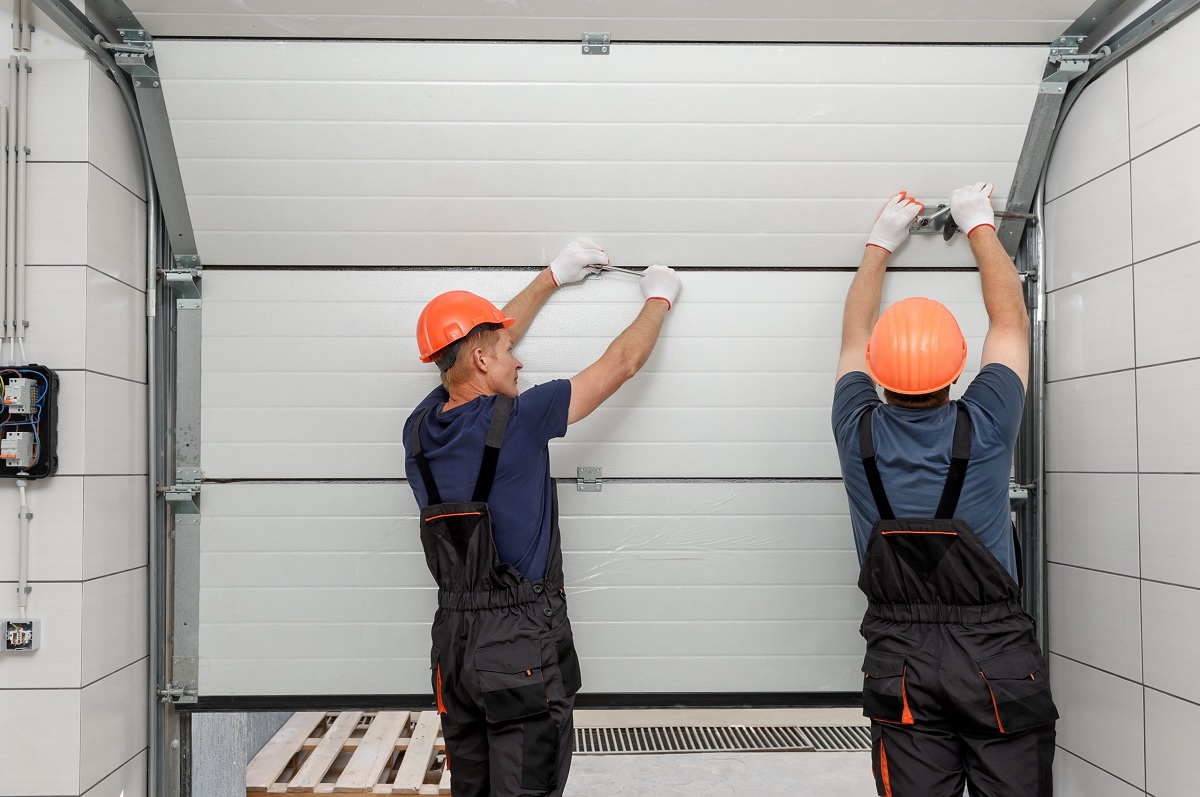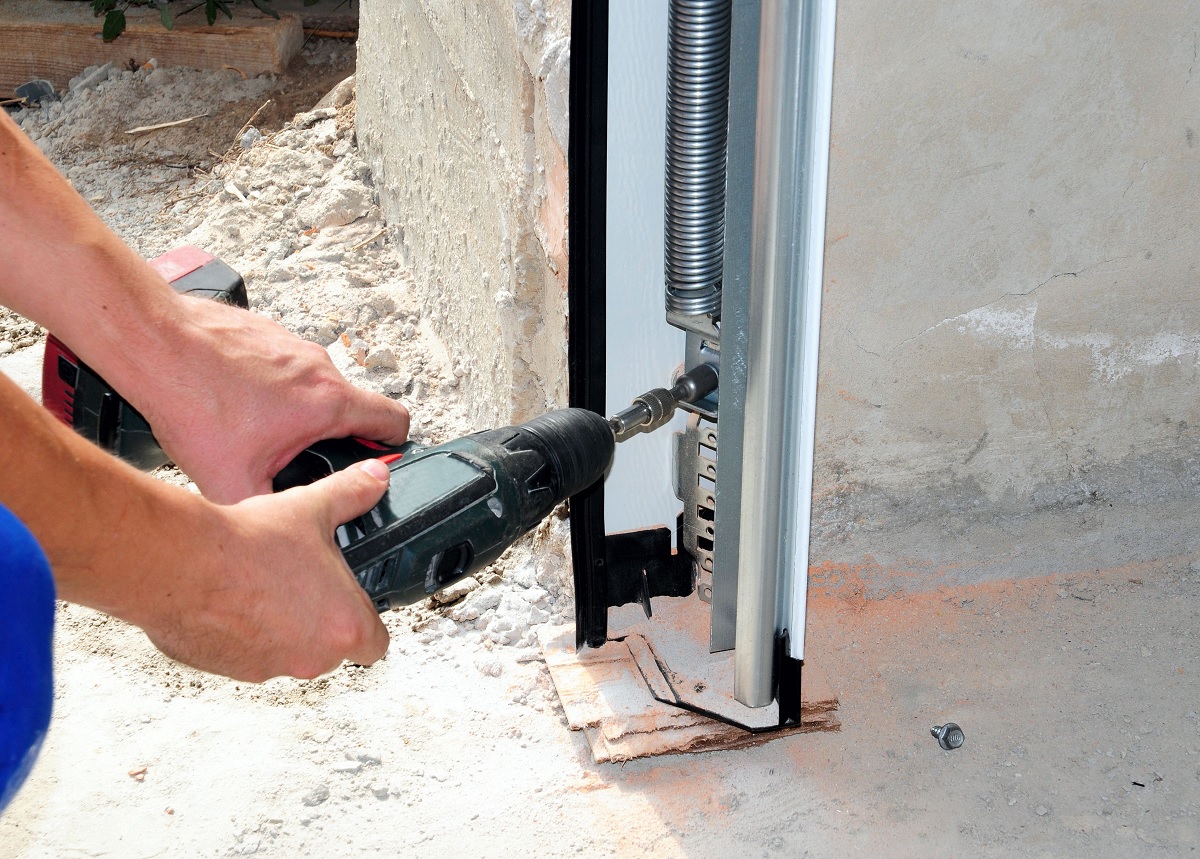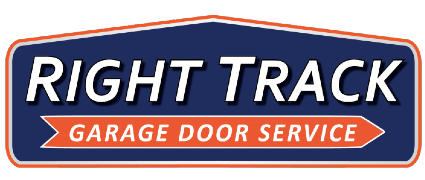Call us for a FREE Estimate. (239) 380-7082
24/7 Emergency Service Rain or Shine!
Call us for a FREE Estimate. (239) 380-7082

Imagine coming home after a long day, ready to relax, only to find your garage door won’t open. It’s frustrating, inconvenient, and can even be a security risk. A working garage door is important for keeping your home safe, ensuring easy access, and protecting your belongings. Knowing how to handle common garage door repair issues can save you time and money while keeping your home secure.
This post will cover essential tips for quick and effective garage door repair. You’ll learn how to identify common problems, perform simple DIY fixes, and know when to call the professionals at Right Track Garage Doors and the most common repairs they encounter. You’ll be better equipped to maintain your garage door by the end, ensuring it operates smoothly and reliably.
A noisy garage door is annoying and usually means something is wrong. Common causes are loose hardware, worn rollers, or lack of lubrication. First, tighten all the bolts and screws on the door and tracks. Then, check the rollers for wear and replace them if needed. Finally, use a silicone-based lubricant on the rollers, hinges, and tracks to reduce noise and help everything work better.
If your garage door is stuck, it could be caused by a few issues. First, check if the tracks are misaligned or blocked by debris. Clean the tracks and make sure they are straight. Another common issue is a broken spring, which a professional should only fix. Finally, check the garage door opener for flashing lights or error codes that might show what’s wrong.
When your garage door remote control stops working, it can be a hassle. Check the batteries and replace them if needed. Ensure the remote is within range and there are no obstructions between the remote and the opener. If the problem persists, try reprogramming the remote according to the manufacturer’s instructions. Also, check for any damage to the remote or the opener’s antenna.

Broken garage door springs are a common problem that can stop your door from working. These springs support the door’s weight and are under high tension, making them wear out over time. The door may feel heavy and hard to lift if a spring breaks. Fixing this quickly is important because trying it yourself can be dangerous. Professional garage door technicians have the skills and tools to replace broken springs safely, get your door working again, and ensure it operates smoothly.
A malfunctioning garage door opener can be frustrating when the door doesn’t respond to the remote or keypad, makes strange noises, or works inconsistently. To troubleshoot the problem, check the batteries, inspect the wiring, and adjust the settings. If these steps don’t work, it’s best to call a garage door repair professional to diagnose and fix the issue.
Misaligned or dirty sensors can prevent your garage door from closing properly. Check that the sensors on either side of the door are aligned and pointing directly at each other. Clean the sensor lenses with a soft cloth to remove dirt or debris. If the sensors are still not working, adjust their position slightly until the door functions correctly.
Before starting any garage door repair, disconnect the power supply for safety. Unplug the garage door opener or turn off the circuit breaker to prevent accidental movement. This simple step helps avoid serious injuries while working.
To repair a garage door, you need the right tools. Use a wrench set, screwdrivers, and pliers for bolts, screws, and gripping parts. A hammer, tape measure, level, ladder, and silicone-based lubricant are also essential.
When doing garage door repairs, always wear protective gear to stay safe. Put on gloves to protect your hands from cuts and bruises. Wear safety goggles to shield your eyes from dust and debris. Wear ear protection to prevent hearing damage if you’re using loud tools. This gear helps you avoid injuries and makes the repair process safer.
Regular lubrication is key to maintaining a smooth and quiet garage door. Apply a silicone-based lubricant to the rollers, hinges, and tracks. Avoid using grease or oil, as they can attract dust and debris. Lubricate the moving parts every six months to keep your garage door in good condition.
Misaligned or dirty sensors can stop your garage door from closing. Make sure the sensors on both sides are aligned, and clean the lenses with a soft cloth. If it still doesn’t work, adjust the sensors slightly.
Loose bolts and screws can make your garage door noisy and cause it to work poorly. When the hardware is not secure, the door may rattle when it opens and closes. To fix this, inspect all the bolts and screws on your garage door and tracks. Use a wrench or screwdriver to tighten any that are loose. Regularly checking and tightening the hardware can help prevent bigger problems later, saving you time and money on repairs.
Some garage door repair tasks are too complex or dangerous to handle alone. If you notice broken springs, damaged cables, or issues with the garage door motor, it’s best to call a professional. These repairs require specialized knowledge and tools to ensure they are done safely and correctly.
Attempting major repairs without proper knowledge can pose serious safety risks. Garage door springs are under high tension and can cause severe injuries if handled improperly. Additionally, electrical components of the garage door opener should only be repaired by qualified technicians to avoid electrical shocks and other hazards.
Conduct regular inspections of your garage door to catch any issues early. Check the door’s balance, listen for unusual noises, and look for signs of wear and tear on the rollers, springs, and tracks. Performing these inspections every three to six months can help prevent major problems.
Keeping your garage door and tracks clean is important for smooth operation. Remove any dirt, debris, or cobwebs from the tracks using a damp cloth or a vacuum with a brush attachment. Wipe down the door panels with mild detergent and water to maintain appearance and functionality.
Scheduling an annual professional check-up can help ensure your garage door remains in top condition. A professional technician can perform thorough inspections, make necessary adjustments, and address any potential issues before they become major problems. This preventative maintenance can extend the life of your garage door and save you money in the long run.
Maintaining your garage door can prevent many common issues and ensure smooth operation. From identifying problems like noisy operation and stuck doors to performing simple DIY fixes such as lubrication and sensor alignment, there are many steps you can take to keep your garage door in good shape. Remember to always prioritize safety by disconnecting the power and wearing protective gear. It’s best to call a professional to avoid risks for complex repairs or when in doubt.
We encourage you to regularly inspect and maintain your garage door to avoid costly repairs down the line. These tips can save you time and money while keeping your home secure. For professional assistance, don’t hesitate to contact Right Track Garage Doors for reliable service.
